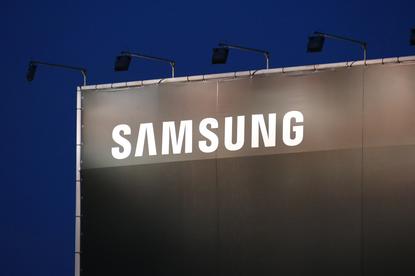Samsung’s rocky run continues
- 17 January, 2017 10:08

As Samsung prepares to share the findings of its investigation into the cause of its Galaxy Note7 battery fault, the company is set to face new challenges into the new year.
On January 15, Reuters reported that an internal probe by Samsung Electronics into what caused some of its flagship Galaxy Note7 smartphones to spontaneously combust is likely to place the blame on the device’s battery.
A source familiar with the matter told Reuters that the Korean electronics leviathan found the battery was the main reason behind the spate of fires that started to occur shortly after the commercial release of the flagship smartphone last year.
The company is yet to officially comment on the findings of its internal probe into the Galaxy Note7 debacle. However, it is expected to reveal the results of the investigation on January 23, according to Reuters.
If Samsung’s official findings from the investigation do, indeed, point the finger of blame at the Note7 battery itself, it would come despite moves by the company late last year to issue replacement devices with different batteries.
Incidences of battery fault-related combustion among Galaxy Note7 devices continued to plague Samsung, even after the company issued software updates to limit the battery power of the devices to 60 per cent.
The company is also thought to have shopped around for new battery suppliers following its issues with the Note7, reportedly engaging LG Chem about the possibility of using the rival company’s batteries in its new smartphones.
Ultimately, the Galaxy Note7 issues saw the company recall millions of units worldwide, permanently discontinuing production of the device, and issue a software update aimed at bricking the phone, rendering the remaining Note7 units unusable.
The moves taken by Samsung to withdraw its troubled Note7 device from the global market did not prevent some consumers from taking legal action against the company over issues stemming from the device's faults.
Not only has the company faced lawsuits from alleged victims of the overheating batteries on the Note7 smartphones, in October last year, it received additional legal overtures by a group of consumers in the United States that proposed a class action lawsuit for compensation over the time it took to replace and discontinue the device.
Meanwhile, Samsung’s Note7 recall woes were compounded late last year with the recall of millions of washing machines made between 2010 and 2013 over safety issue concerns.
While the issues with the Note7 made 2016 a bumpy year for Samsung, with the company’s smartphone division seeing sales and profits dive following the recall, the company has also started 2017 in less than ideal circumstances.
Page Break
As the fallout of the company’s Note7 issues begins to subside, Samsung Group is facing the prospect of a major split into two separate entities and undertaking new public offerings after agitation by activist hedge fund, Elliot Management.
“Samsung Electronics has taken steps to simplify its business to concentrate on core capabilities in the past several years and the company continues to review opportunities to optimise long-term value,” Samsung said in a statement late last year.
“This includes the possibility of creating a holding company structure and the potential benefits and feasibility of listing the company’s shares on additional international exchanges,” it said.
The move came after the publication of an open letter to Samsung’s board of directors by Blake Capital LLC and Potter Capital – both of which are affiliates of activist hedge fund, Elliot Management – that calls on the company to restructure in a bid to unlock investor value.
While a potential split is on the table, the company is yet to make any firm decisions on how it should restructure to “unlock investor value”, as it continues to undertake a review into its options while retaining control of the group amid shareholder disquiet.
“The review does not indicate the management or the board’s intention one way or another. The process is expected to require at least six months and Samsung Electronics will make a decision only after the review is complete,” it said in November last year.
Meanwhile, Samsung Electronic’s vice-chairman and de facto head, Lee Jay-yong – known as Jay Y. Lee – is facing allegations of bribery and embezzlement, with South Korean prosecutors reportedly seeking a warrant for his arrest.
Samsung denies the allegations.
Lee, the eldest child of Samsung chairman, Lee Kun-hee, is alleged to have participated in payments that Samsung made to a friend of South Korea’s president, Park Geun-hye, to help garner government support in the company’s succession planning, according to Bloomberg.
Despite Samsung's unwieldy size, the company has until now remained tightly-controlled by its septuagenarian chairman, Lee Kun-hee, and his family, which hold sway over the group’s 74 companies through various holdings.
Samsung's vice-chairman has been seen as the company's de facto leader since his father was hospitalised in 2014 after suffering a severe heart attack.
Now, however, if the country's prosecutors get their way and Lee Jay-yong does find himself embroiled in a legal battle with the government, the company could end up facing a leadership vacuum that may give investors even greater cause for concern.
At the time of writing, a court was yet to decide whether to grant a warrant to South Korean prosecutors for the arrest of Lee. The hearing is reportedly scheduled for 18 January.

